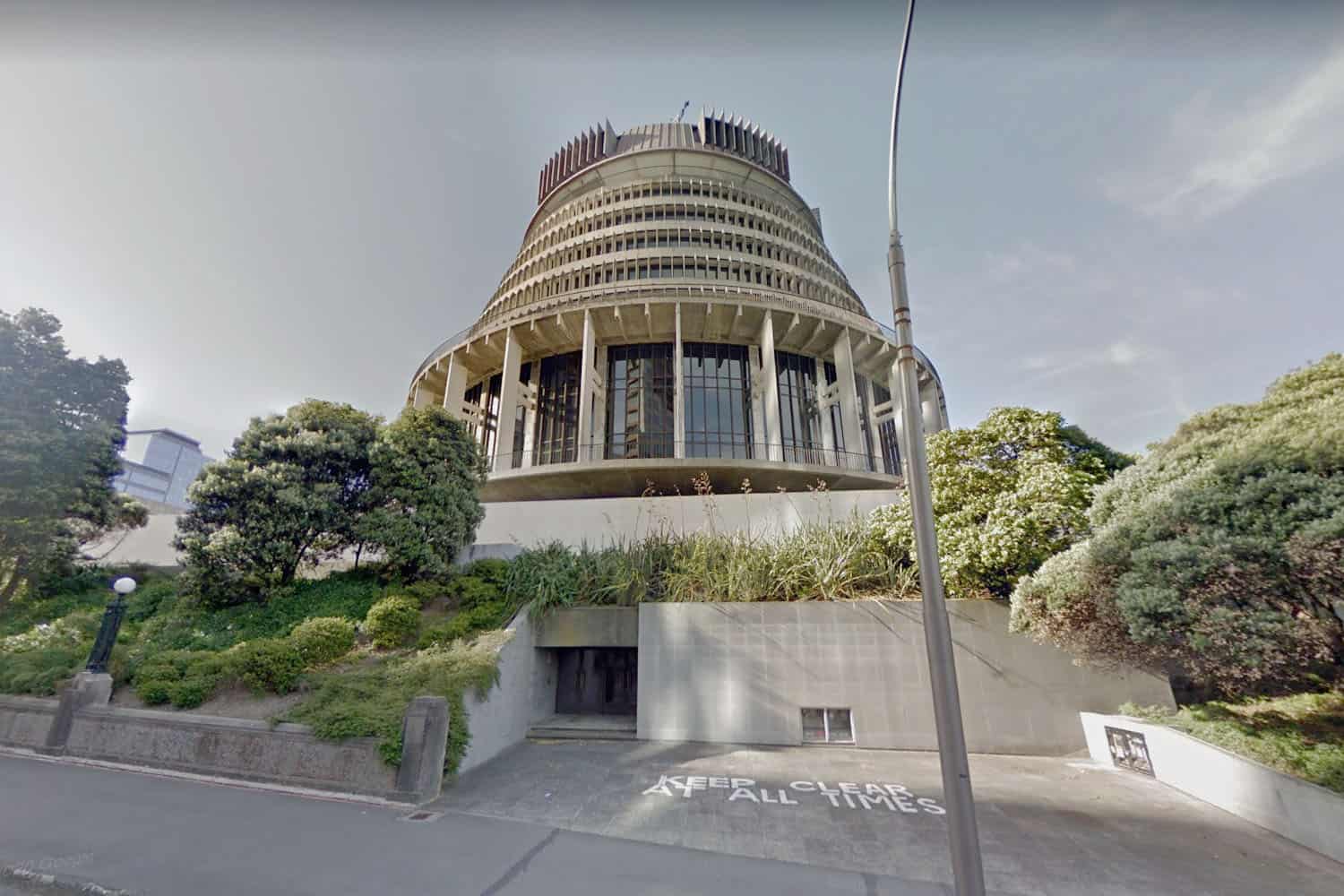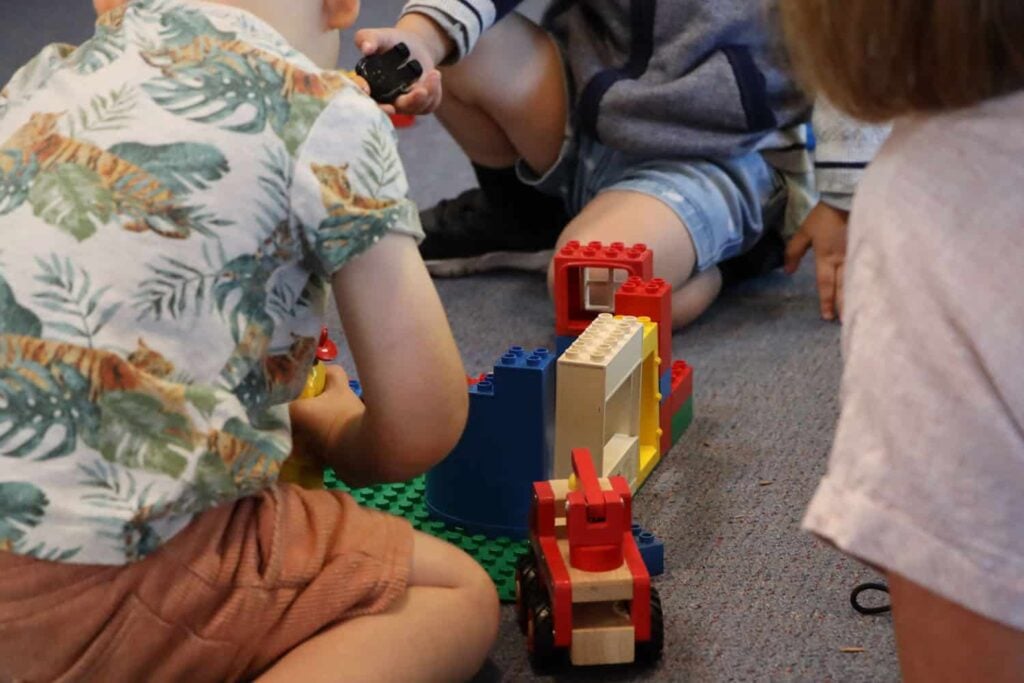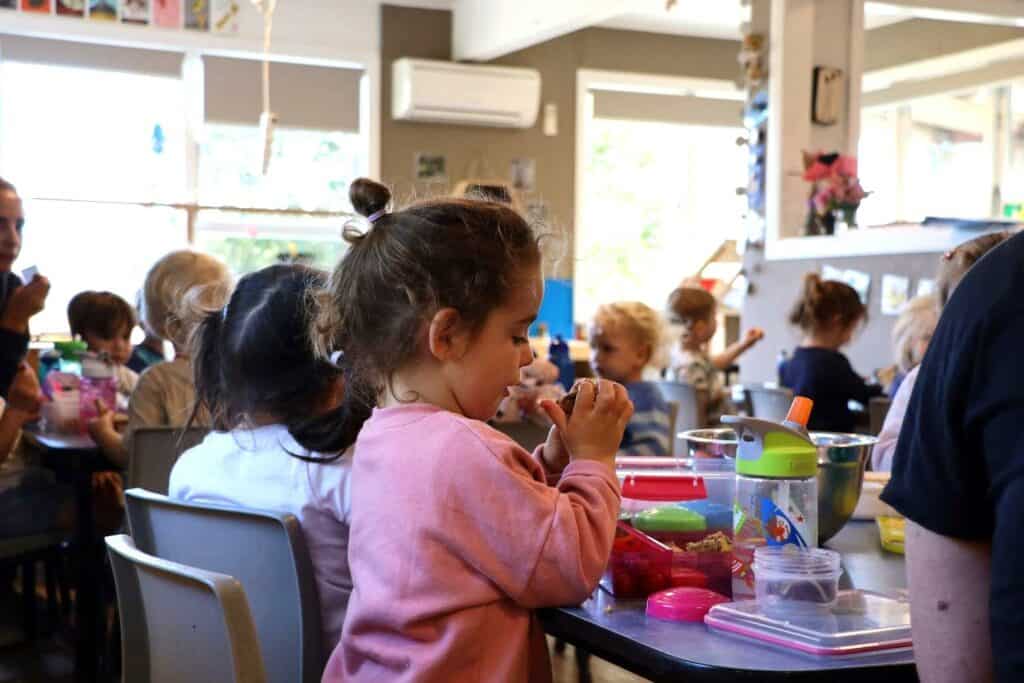Pre-Election Promises 2008.
By Sarah Alexander.
Early childhood policy matters for children, families and family life quality. It matters also for the functionality and operation of early childhood services and it matters for the wellbeing of everyone working in services.
- Too much control, or inappropriately timed intervention, by officials and regulations can be annoying and destructive.
- Too little, or policy that misses the mark, can mean potential for improvement remains unharnessed or problems grow into bigger problems.
- Policy developed primarily to satisfy the loudest or most influential voices is unlikely to serve other stakeholders well who have less or no power and no representation on early childhood advisory groups (namely children and parents).
- Policy we agree with, feel ownership of, and is well considered and tested or trialled can give tremendous support and take us forward instead of swinging from one side of the pendulum (or policy extreme) to the other and needing to undo mistakes or go back to what worked better before.
Most parties, with the exception of United Future NZ, did not have their early childhood policy for the forthcoming election available by the end of June 2008, although the election was at most 3 to 4 months away (in November at the latest). It is only possible to consider emerging points of commonality and difference in party policies and this information is presented below.
In regards to the Labour Party, it is usual for parties in government to build on their achievements when it comes to drafting election manifestos. It would therefore be a reasonably safe bet that we will not see a major departure or change in policy direction.
There may be some tinkering around the edges – e.g. extending 20 hours Free ECE to other service types or to infants/toddlers, and some promised funding boosts to certain areas. But any major new policy or change in direction would be dangerous for Labour, potentially giving other parties ammunition to say “see we knew you didn’t get it right for children, for parents, or for the sector, and now you are admitting it”. On the other hand, honesty may surprise voters and win voter support if Labour said something like “we realise now that we made a made a mistake in …. In hindsight it would have been better to …. So we are committed now to ….”.
A big unknown is, whether in the rush for votes, parties will remain ideologically true to themselves. An example of this in the last election was Labour’s 20 hour Free ECE policy to promote the growth of, and children’s attendance in, community/public early childhood services. It was changed to include privately owned services under fierce competition with National for the parent vote and pressure from service providers.
This election though is not likely to be as tightly contested if the polls are right, so the incentive for any political party to let go of, or temporarily suspend, an ideological position for votes may not be that strong.
Labour, however, if it forms the next government will be faced with different pressures in the economy to those that supported using early childhood education as an economic mechanism to help to meet labour market needs for more workers. So we could see some lessening of the push to increase children’s hourly attendance and total time in services and some changing in the structure and conditions of funding to services.
Further, the bill for providing Free ECE is likely to escalate and become unaffordable if the government is to meet the true and full costs for services to provide this and meet new regulatory and higher staffing requirements. This problem is already being acknowledged in Britain. See for example: http://www.independent.co.uk/news/uk/politics/affordable-childcare-plan-failed-says-report-836758.html which reports that the “promised revolution in affordable nursery provision” is failing, even according to the Government’s own research.
National has more room to move than Labour. It is no surprise that National’s early childhood policy did not come out before the last Government Budget. National, no doubt, has wanted to make sure that Labour is not going to pull a new rabbit out of the hat. One thing is almost certain though, and that is that the funding allocated to Labour’s Free ECE policy will pretty much remain as a subsidy for teacher-led services to cover, fully or partially, the costs of 3 and 4 year-old attendance. It may even be extended to parent-led services. To take away the 20 hour funding subsidy would be very unpopular indeed and National, like other parties, seem to be astute enough to have worked this out.
The Tables below present information on the policies of the main parties, under the topics of:
- Core values
- Funding
- Early intervention
- Integrated early childhood services
- Parenting programmes
- Early childhood services
- Staffing
- Other Standards
Where you see gaps within the Tables, this is because a party does not have policy on that particular early childhood topic area or a party has not released its policy yet and a confident guess on what the policy might be can not be made.
Core Values/Ideology
| United Future | Prioritise the paramount bond between parent and child, especially in the child’s first three years. Allow parents, and not the government, to choose the most appropriate provider of preschool education for their child. |
| Labour | Early childhood education is the first stepping-stone on the path to lifelong learning. Access to high quality early childhood education that parents can afford, is the firm footing children need to thrive at school and beyond. Intensive and regular participation in early childhood education improves long-term educational outcomes for children. |
| Green | Education is based on the fundamental understanding of two principles. The first is sustaining our interconnectedness to the earth and all the resources that provide is with sustenance. The second is building relationships with each other that foster peace and co-operation while sharing resources. Children suffer the most from government policy yet have no priority in its development. The Greens want to change that. |
| National | PRINCIPLES (1) Valuing families; (2) Higher standards in education; (3) Building opportunity for all. Government should not dictate what sort of early education and care is best for families. Support families by providing them with real choices about how they balance and manage their own lives. Most children will benefit from some form of early childhood education, but also parental engagement, parental choice, parents having the skills and abilities and the time to engage and interact with their under-fives is important for children. |
| Maori | |
| Act | Choice is fundamental to all of Act’s policies. Provide a level-playing field so parents have a choice to work, study, part or full-time. |
| NZ First |
Funding
| United Future | 3 and 4 year olds should have 20 hours (or part thereof) early childhood education per week heavily subsidised by government, including in Play-centre, Köhanga Reo and Pacific Language nests. Ensure that government funding of early childhood centres is reflected in the fees passed on to parents by requiring them to disclose what proportion of fees, are taxpayer-funded. Only party with a policy on income splitting so parents with dependent children, where it works for them, can split income and pay lower tax rate. |
| Labour | Possibly look at extending paid parental leave beyond 16 weeks. Continue to promote participation in early childhood education to families with children particularly under three years old. 2005 Policy: Fund the full cost of 20 hours ECE for three- and four-year-olds attending any licensed, teacher-led service. Ensure playcentres are resourced and that the contribution they make to the early childhood education sector is appropriately recognised. |
| Green | Introduce a universal child benefit of $15 a week for the first child and $10 for every child there after – to help to address child poverty. A tax-free band at the bottom for those who earn the least to be supported more. Particularly supportive of the not-for-profit and community based providers of early childhood education. Take action to control the proliferation of profit based early childhood centres as they interfere with quality provision and force out community based centres in smaller towns. Possibly call for a moratorium on any new private ECE centres until there an assessment of the provision and quality of private ECE and a strategic planning process to support community based not for profit centres. |
| National | 2005 election: tax deduction for pre-school childcare costs, to similar amount as Free ECE funding budget per child, to ease the financial pressures on parents, particularly on second-income earners and employed sole parents – recognising the higher costs of ECE arrangements for employed parents. 2008: possibly keep 20-hour subsidy. Look at changing 6-hour day rule for hours to be used in ways that suit services and parents. The Government’s ’20 Hours Free ECE’, will be renamed ’20 Hours ECE’. All the existing subsidies and fee controls will be retained and the 6 hour day rule will be removed. Playcentres and Kohanga Reo will be included in 20 Hours ECE and five year-olds. Will investigate more frequent payment methods. |
| Maori | |
| Act | Make being a stay-at-home parents an economic option by getting NZ to perform economically better. Ensure better use of government/taxpayer money so ECE can be allocated more. Provide a level-playing field in funding for all services. |
| NZ First | Prepared to look at income splitting. Alter tax structure to support lowest income families. Increase the discretionary grants available to communities for building or upgrading early childhood facilities |
Early Intervention
| United Future | Increase funding for early identification of children with special needs and disabilities with targeted systematic, intensive and high quality interventions. |
| Labour | |
| Green | Inclusive education is essential. Mainstreaming advantages children. Money should be directed to the child and teacher specifically. |
| National | |
| Maori | |
| Act | |
| NZ First | 2005 election: Initiate Family Start Programmes across the country aimed at those children at greatest risk of less-than-optimal development |
Integrated Delivery
| United Future | Pilot the use of early childhood education centres as contact points for family support services, such as parenting courses, budget advice, health and counselling services. |
| Labour | 2005 policy: Support initiatives within the health sector to identify barriers to early learning. |
| Green | Encourage the physical placement of schools and early childhood services close to one another |
| National | |
| Maori | |
| Act | |
| NZ First |
Parenting Support
| United Future | Support the concept of parents as first teachers and encourage the expansion of programmes like PAFT and HIPPY to families other than those deemed to be at-risk. |
| Labour | |
| Green | |
| National | |
| Maori | |
| Act | |
| NZ First | Make available HIPPY programmes to all families with low levels of educational capital Develop Parents as First Teacher programmes across the country |
Early childhood services
| United Future | Endorse the role of parent-led early childhood education centres to empower parents to lead their children’s education and encourage the parent-child bond. Support the further development/growth of Te Köhanga Reo and Pacific Island language nests. |
| Labour | 2005 Policy: Encourage early childhood providers to extend services, by either growing their centres (where appropriate) or establishing additional centres on other sites. Encourage employers (particularly in the state sector) to establish early childhood education facilities on work sites |
| Green | Continue to implement the Strategic Plan in consultation with sector groups Encourage early childhood groups to participate in environmental projects with communities and councils. May remodel 20 hour policy to favour sessional rather than full-day options. |
| National | Ensure that “care” remains within early childhood “education” in the push towards more formalised services. Address participation rates in a different way since services reported little increase in participation of new families and some reported less opportunity for new families to participate after the 20Hours Free ECE policy was introduced. Work with community groups, private centres, home-based providers, and local government to develop local solutions that best meet the early childhood needs of communities. |
| Maori | May address the trend for sessional services to go longer day due to funding arrangements. |
| Act | |
| NZ First | Explore the possibilities of enabling early childhood centres to be funded more than six hours per day and for weekend sessions |
Staffing
| United Future | Increase the number/representation of male teachers. Support lifting the qualifications of staff, but relax the target for all staff to be degree-qualified by 2012 for centres that provide all-day care as well as education, to allow them to employ support staff to supervise children when they are not actively engaged in learning. |
| Labour | By 2012, all staff in teacher-led services must be registered. Continue to promote scholarship scheme for early childhood teacher trainees, so there are sufficient registered quality teachers to staff additional services |
| Green | While agreeing that early childhood educators should be well qualified the Greens approach to valuing children is about them in the context of their whanau, an approach taken by Playcentre and Kohanga Reo. New teachers trained as part of their core training to incorporate sustainability in their teaching. |
| National | Consider recognising the qualification of overseas trained early childhood teachers. Promote working while training, allow qualified English-speaking foreign teachers to qualify after an intensive six-week programme, and allow Montessori, Steiner, and Playcentre qualifications to count towards a degree. Ensure that, after 2012, sessions for the under-twos in teacher-led early childhood centres are staffed by at least 50% qualified teachers. |
| Maori | |
| Act | |
| NZ First |
Other ECE standards
| United Future | Support teacher excellence. Prioritise staff-to-child ratios for each age group as a condition of funding for early childhood education centres where applicable. Simplify with a view to reducing the quantity and complexity of compliance requirements that service providers must fulfil. Views as a myth that there is no qualification for teaching in playcentres. |
| Labour | Raise quality through a new definition of early childhood qualifications as a Dip of Tchg, and require staff to be registered teachers. New regulations for early childhood services with specified criteria. Closed sleep room for under-twos in all-day services to remain in the new regulations. Focus on professional development and learning e.g. funding Centres of Innovation. |
| Greens | Ratios of teachers to children of: 1:3 for under twos with a group size of no more than 6 children; 1:5 for two to threes with a group size of no more than 12 children; and 1:8 for over threes with a group size of no more than 24 children |
| National | Check for any instances of over-regulation, allow common sense to prevail, iron out some of the senseless rules e.g. current requirement for a 2nd license for over 50 children. “Early childhood education should not be about constantly struggling to administer endless and pointless regulations.” Reduce the under-twos ratio from 1:5 to 1:4 Delay the introduction of all new EC regulations and criteria for 6 months to take stock and consult with the sector and parents |
| Maori | |
| Act | Quality should be measured by outcomes, e.g., how well children are prepared for school, not by staff qualifications. |
| NZ First |








